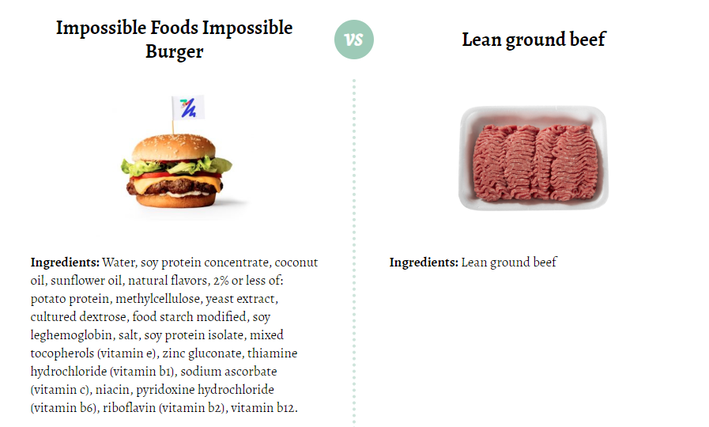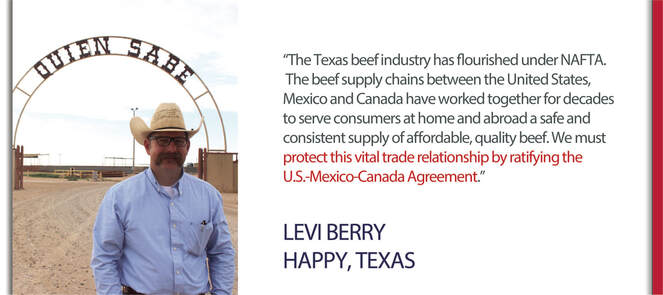|
Legislation to codify the definition of beef and uphold truthful labeling on alternative protein products has now been introduced in both chambers of Congress. On Wednesday, Sen. Deb Fischer of Nebraska introduced the Real MEAT (Marketing Edible Artificials Truthfully) Act as a companion bill to H.R. 4881, which was introduced in the House of Representatives in October.
"Consumers want to know what is in their food, and rightfully so," said Paul Defoor, TCFA chairman. "There are a number of fake products on the market that claim to be meat, when in fact, they are the furthest thing from real meat. "Americans love beef, so it's not surprising that fake products would try to ride the coattails of beef's popularity, but consumers deserve more than deceptive labels. They should be confident that, when they buy a product labeled meat, it's actually meat. Furthermore, food labels should be honest and accurate, and these bills will ensure that consumers have the right information to make their own decisions." The bills would establish a federal definition of beef that applies to food labels. They also preserve the congressional intent of the Beef Promotion and Research Act that was signed into law as part of the 1985 Farm Bill. Section (3) of that bill clearly defined the terms "beef" and "beef products," and although these terms were codified in 1985, they don't apply for labeling purposes. The Real MEAT Act would fix that. Second, the bills affirm the misbranding provisions that are already on the books. These provisions were put in place over 50 years ago to prevent consumer confusion, and that intent has not changed. Third, the bills strengthen enforcement of mislabeling laws. Currently FDA, the agency that oversees plant-based proteins, does not enforce mislabeling until a product has already come to market. This is, in-part, because FDA does not require the approval of labels on foods under their jurisdiction before they hit the shelves. The Real MEAT Act would change that by requiring FDA to notify USDA, in writing, when they determine a product is mislabeled. If FDA does not take enforcement action within 30 days, the Secretary of Agriculture can step in and take action. “Beef is derived from cattle — period," Senator Fischer said. "Under USDA, beef undergoes a rigorous inspection and labeling process, but plant-based protein products that mimic beef and are sometimes labeled as beef are overseen by the FDA instead. These products are not held to the same food safety and labeling standards as beef. The NCBA has been a leader on this issue, and I am thankful for their strong support of the Real MEAT Act, which will protect consumers from deceptive marketing practices and bring transparency to the grocery store." Fisher wrote about the motivation behind the bill in Wednesday's Wall Street Journal. Thank you Sen. Fischer. We could not agree more.
0 Comments
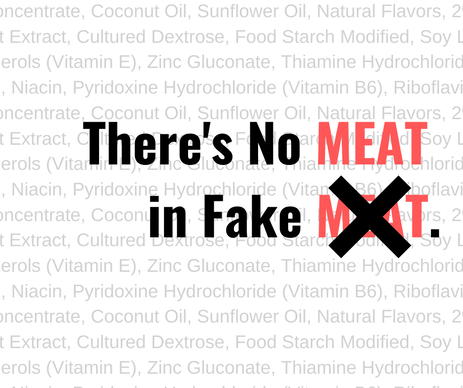
A bill was introduced in Congress last week that would codify the definition of beef and uphold truthful labeling on alternative protein products that currently refer to themselves as meat (even though there is ZERO meat in them). TCFA strongly supports this bill, H.R. 4881, and urges Members of Congress to sponsor and support it.
The bill is pretty simple. First, it establishes a federal definition of beef that applies to food labels. It also preserves the congressional intent of the Beef Promotion and Research Act that was signed into law as part of the 1985 Farm Bill. Section (3) of that bill clearly defined the terms "beef" and "beef products," and although these terms were codified in 1985, they don't apply for labeling purposes. The Real MEAT Act would fix that. Second, the bill affirms the misbranding provisions that are already on the books. These provisions were put in place over 50 years ago to prevent consumer confusion, and that intent has not changed. The problem is that many consumers believe plant-based meat is healthier, less processed and overall better for the environment. A quick comparison of the ingredient labels of both products indicates those beliefs couldn't be further from the truth.
Third, the bill strengthens enforcement of mislabeling laws. Currently the Food and Drug Administration (FDA), the agency that oversees plant-based proteins, does not enforce mislabeling until a product has already come to market. This is, in-part, because FDA does not require the approval of labels on foods under their jurisdiction before they hit the shelves. The Real MEAT Act would change that by requiring FDA to notify USDA, in writing, when they determine a product is mislabeled. If FDA does not take enforcement action within 30 days, the Secretary of Agriculture can step in and take action.
The bottom line is this: Consumers want to know what is in their food, and rightfully so. The beef community has worked for decades to establish beef's strong reputation among consumers, so it is not surprising that imitation products would try to ride the coattails of beef's popularity. But consumers deserve more than deceptive labels, and this bill would give them the factual information they need to make their own purchasing decisions. 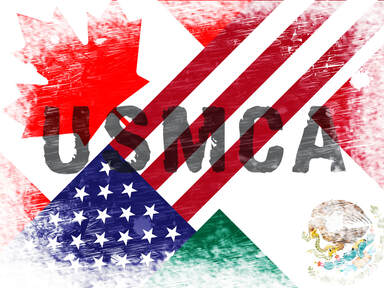
TCFA sent an independent letter to the Texas, New Mexico and Oklahoma congressional delegations this week calling for the swift ratification of the United States, Mexico and Canada Free Trade Agreement (USMCA).
“Texas leads the nation in both cow-calf production and fed cattle production, so developing and maintaining strong foreign markets for U.S. beef greatly benefits the industry and the state’s economy,” the letter sent to Texas members said. “For over 25 years, the cattle/beef industry has benefited from unrestricted, duty-free access to Mexico and Canada under the North American Free Trade Agreement (NAFTA). In 2018, U.S. beef exports to Mexico and Canada totaled $1.8 billion, accounting for an additional $70 per head and providing value throughout the production chain.” The letter goes on to state that NAFTA has been one of the greatest success stories in the history of U.S. agriculture (especially U.S. beef) and calls on Congress ratify the new agreement. What's more, farmers and ranchers need the U.S. Mexico Canada Trade Agreement to be approved by Congress now. That is the message Levi Berry, TCFA chairman; Russel Boening, Texas Farm Bureau president; and Bobby McKnight, TSCRA president, wrote in an op-ed that ran in the San Antonio Express News on Friday. The letter stresses the positive impact the North American Free Trade Agreement (NAFTA) has had on the Texas economy, and points out how our state’s economy, particularly as it pertains to agriculture, will suffer without a trade agreement with both Canada and Mexico. “Texas agriculture has flourished under sound trade policies. Unfortunately, these successful policies are at risk, and that alarms Texas farmers and ranchers,” the group wrote. “Congress has the power to help. Ratifying the USMCA would provide a much-needed boost to Texas agriculture and would benefit our rural communities that depend on exports to Canada and Mexico for economic success.” Since NAFTA’s enactment in 1994, U.S. agricultural exports worldwide climbed from $46 billion to $139.6 billion in 2018 — a 202% increase. During that same period, U.S. agricultural exports to Mexico and Canada grew from $10 billion to $39.7 billion per year — a 297% increase. In Texas, economic activity related to agricultural exports to Mexico and Canada account for more than $3.7 billion and 22,972 jobs. USMCA seeks to build upon NAFTA’s success. And, while USMCA was signed in November 2018, the group points out that all three countries must ratify the agreement in their legislative bodies before it can take effect. Meanwhile, TCFA along with NCBA and 38 state affiliate organizations sent a letter to Congress asking for quick approval on USMCA. NCBA delivered the letter this week to the four top congressional leaders urging swift ratification, emphasizing that exports of U.S. beef to Canada and Mexico totaled $1.8 billion in 2018 and added $70 in value per head. In the letter, the groups also strongly encouraged congressional leaders to oppose efforts to reinstate mandatory country-of-origin labeling (MCOOL), which was repealed by Congress in 2015 and cost the U.S. beef industry hundreds of millions of dollars to implement with no benefit. 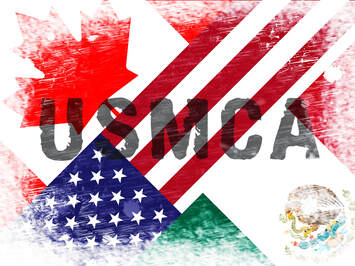 TCFA was among 119 Texas industry groups that sent a letter to Congress this week calling for swift action and support of the United States-Mexico-Canada Agreement (USMCA). The groups reinforced the need for ratification of USMCA in order to provide certainty for the many business sectors in Texas, including agriculture, that rely on trade with Canada and Mexico, while in turn contributing to the U.S. economy. “USMCA would create much needed certainty for Texas farm and ranch families who contribute to the economy and feed and clothe millions worldwide,” the letter stated. “Over 60,400 Texas jobs are supported by exporting agricultural products to Mexico and Canada. The annual value of Texas’ agricultural exports to our North American neighbors totals more than $7.2 billion. USMCA would only build on these achievements by breaking down existing trade barriers and opening more market access for products like beef, dairy, corn, wheat and pork.” Meanwhile, on Wednesday, the Mexican Senate passed the USMCA becoming the first country to ratify the new trade agreement. “The Texas beef industry has flourished under sound trade policies. The beef supply chains between the United States, Mexico and Canada have worked together for decades to serve consumers at home and abroad a safe and consistent supply of affordable, quality beef," said Levi Berry, TCFA chairman. "We must protect this vital trade relationship by ratifying the U.S.-Mexico-Canada Agreement.” In a statement, U.S. House Ways and Means Committee Ranking Member Kevin Brady (R-The Woodlands) also praised Mexico and reiterated Congress’ need for swift action.
“Today’s action, combined with passage of Mexico’s landmark labor legislation earlier this spring, demonstrates Mexico’s solid commitment to serious reform and tough new rules to create fairer trade. Now it’s time for the U.S. Congress to pass USMCA as soon as possible to unlock the benefits of this agreement for U.S. workers and our local businesses. The longer Congress delays, the more our country loses out on new jobs, more customers for Made-in-America goods, and a stronger economy,” Brady said.  Good news for cattle feeders regarding the 2015 Waters of the United States (WOTUS) rule. On Tuesday, U.S. District Judge George Hanks, of the Southern District of Texas, ruled that the Obama administration failed to adequately notify the public of key working changes in its 2015 rule redefining “Waters of the United States” or WOTUS. The summary judgement sends the rule back to the EPA and the Army Corps of Engineers on grounds that it violated the Administrative Procedure Act (APA) in making changes in the final rule that were not proposed in the preliminary rule. Court rulings across the country have created a patchwork of WOTUS implementation, with the 2015 rule in force in 22 states but blocked in 28. This week’s ruling does not change that, but it does validate what TCFA and NCBA have said all along — that the rule is illegal and must go. “For years TCFA feedyards have dealt with uncertainty regarding Obama’s 2015 WOTUS rule,” said Tom McDonald, 2015 TCFA chairman and leader on TCFA’s work to replace the 2015 rule. “We hope this decision will expedite that process. In the meantime, TCFA will still work with Congress to put an end to the 2015 rule.”
|
Categories
All
Archives
June 2024
|
About TCFA |
Get Involved |
|


